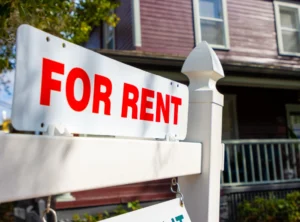The 4 Biggest Mistakes Landlords Should Avoid
Being a landlord can be both an exciting and daunting experience. After all, while there are certainly profits to be made as a landlord, there are also plenty of mistakes that can be made. If you’re not careful, some of these mistakes could lead to serious legal ramifications for you in the future. Read on to explore a few of the most common mistakes made by landlords and how you can avoid them in your own practice. Not Carrying Adequate Insurance As a landlord–no matter how many units you rent out–it’s your obligation to hold liability insurance for your property. In fact, if you’re still making mortgage payments on the property itself, you may be required by your mortgage company to hold a certain amount of liability coverage. Either way, to protect yourself from legal troubles and potentially huge expenses down the road, you’ll want to carry a comprehensive liability policy at all times. Contrary to what some new landlords believe, requiring your tenants to carry renter’s insurance isn’t enough. You need to be protected in the event that a tenant or visitor attempts to sue you for any reason (slip-and-fall, vehicle vandalism, etc). Practicing Discriminatory Screening Methods It’s easy to act in a discriminatory manner while screening potential tenants–even if you do so unintentionally. There are strict laws in place in the United States (the Fair Housing Act, for example) that prohibit landlords from accepting or denying applicants based on:
Not Carrying Adequate Insurance As a landlord–no matter how many units you rent out–it’s your obligation to hold liability insurance for your property. In fact, if you’re still making mortgage payments on the property itself, you may be required by your mortgage company to hold a certain amount of liability coverage. Either way, to protect yourself from legal troubles and potentially huge expenses down the road, you’ll want to carry a comprehensive liability policy at all times. Contrary to what some new landlords believe, requiring your tenants to carry renter’s insurance isn’t enough. You need to be protected in the event that a tenant or visitor attempts to sue you for any reason (slip-and-fall, vehicle vandalism, etc). Practicing Discriminatory Screening Methods It’s easy to act in a discriminatory manner while screening potential tenants–even if you do so unintentionally. There are strict laws in place in the United States (the Fair Housing Act, for example) that prohibit landlords from accepting or denying applicants based on:
- race
- religion
- gender
- marital status
- disability
In general, then, it’s actually best for landlords to avoid even asking any questions that could be construed as discriminatory. This includes questions about an applicant’s marital status, gender, race, or ethnicity. If you ask these kinds of questions on an application (even if they’re optional), you could be opening up a can of worms. All it takes is one applicant to bring a discrimination lawsuit against you and potentially ruin your career. For Fair Housing compliant landlord forms, please visit our Landlord Forms section. We also recommend reading AAOA’s Secrets to Successful Tenant Screening. Mishandling Abandoned Property Another big mistake you’ll want to avoid as a new landlord is mishandling any property that a previous tenant leaves behind after moving out. Unfortunately, many new landlords don’t realize that any items left behind by a tenant must be treated as abandoned property, no matter how valuable. Depending on the laws in your state, you may also be required to store the property for the tenant and notify them of how to claim it. In most cases, you can charge the tenant a “storage fee,” so long as it’s reasonable. If the property goes unclaimed for a certain amount of time (usually determined by state law), then you may either throw the property out or sell it publicly. Whatever you do, don’t make the mistake of assuming the property is trash and throwing it out right away or deciding to sell it right away to make a profit. If you do so and the previous tenant tries to return for the item, you could be litigated against. Not Disclosing Required Information When you rent out a property, there are certain things that you’re required by law to disclose to the new tenants before they sign any kind of a lease agreement. Some of the information you may be required to disclose (if applicable) include:
- the presence of nearby sex offenders
- deaths that have previously occurred in the unit
- presence of mold in the unit
- whether or not the property has lead-based paint (if built before 1978)
Failure to disclose any of this information can result in legal action being taken against you in the future. In court, failure to disclose is often seen as intentionally putting a tenant or tenants at risk. As such, this kind of charge is taken very seriously in the court system. Therefore, it’s always best to be completely honest and disclose everything you know about a property before you rent it out. As you can see, there are a lot of mistakes that can be made as a landlord–and this is in no way an exhaustive list. Be sure to avoid these mistakes as you begin your new endeavor as a landlord so that you can avoid legal action and trouble down the road.
American Apartment Owners Association offers discounts on products and services for all your property management needs. Find out more at www.AAOA.com













 Accessibility
Accessibility